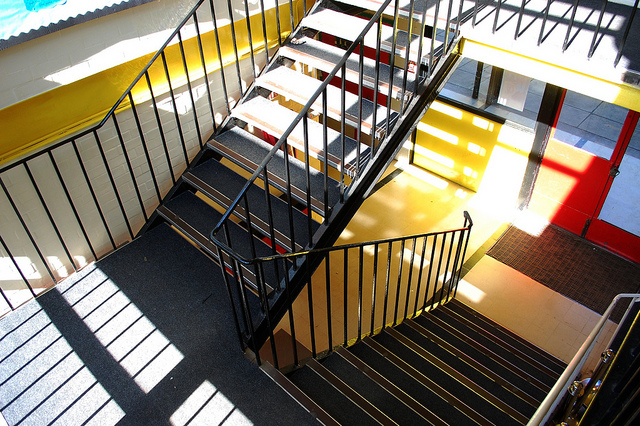
Hope you’re having a wonderful summer! Finding the school that’s right for your child can be complicated (it was for my family). Spending some time thinking about the various types of schools over the summer can be helpful when you start your school search in the Fall. We cover school options in our book, Beyond The Brochure and we’ve written a series of posts about differences between progressive and traditional schools on the blog. Let’s face it, few of us stumble on the right private school in L.A. without giving considerable thought to this issue. Here’s a great piece by our friend Sandy Eiges of L.A. School Scout, an educational consulting firm.–Christina
In evaluating whether or not a school could be a fit for your child, you are going to be looking at how the school addresses a number of needs – academic, social, athletic, artistic, even moral. You are going to be judging how well the school does what it says it does, and whether or not what they do also matches what you believe in.
There are different types of schools out there, including: highly academic, gifted, developmental, special subject (i.e. art, science), traditional, religious, progressive. You are usually the best judge of your child’s ability to swim in a particular environment. While making this determination can be challenging, there are some areas you can look at in evaluating the school, and areas to look at in assessing what your child needs. While there are many additional factors to consider in thinking about a school for your child – geographic, cultural, financial, to name just a few – here are some questions to consider to help you on your way:
Your child and your family:
1. Does the type of school fit your family? Are you a loosely structured family or a more traditional family, or somewhere in between? More traditional families are generally more interested in traditional, academic, more formal schools; more loosely structured families might be more interested in “progressive” or developmental schools. You should see families like yours at schools that feel like a fit.
2. What is your child like? How do they respond to structure? Will they fare better in a larger physical environment or a smaller one? With more students in a classroom or fewer? Do they need a lot of one-on-one time or are they fairly independent?
3. How does your child learn? How does the school teach? Do you think they can accommodate his style of learning?
4. If entering Kindergarten, is your child ready-to-learn? Are they ready for a full school day, and the social, emotional and physical independence required in Kindergarten?
5. Does the school offer additional resources if your child is struggling academically? Does the school offer additional resources if your child is gifted?
6. If entering middle or high school, does the school offer enough classes and enrichment in the subjects of particular interest to your child?
Evaluating the School:
1. What does a typical day look like? Is a schedule posted for children and parents to see? Are parents invited into the classroom? Are there opportunities for parent involvement?
2. Does the school communicate with parents in a collaborative way? Is there a culture of openness in communication with teachers and administration?
3. Do children sit at assigned desks, either individually or in small groups?
4. Is there homework, and if so, how much?
5. Are there textbooks, and how often are these updated? Are they grade-appropriate? What other resources do students have access to?
6. Where do graduates tend to go on to middle school, high school or college?
7. Is there on-going professional development for the teaching staff? Is the school accredited?
8. Does the school share its curriculum with parents? Does the curriculum match the school’s philosophy?
So, for example, a highly academic school might see its role as providing foundational skills and knowledge, so that the student learns to perform at a high level of academic achievement; whereas a more developmental or progressive school might see its primary role as cultivating the student’s love of learning, and discovery of their own interests and abilities. Of course all schools should do both, but what they consider to be of primary importance will direct the curriculum, the instructional philosophy, and the feel of the school day.
What would your ideal school look like? If you can take a step back and put yourself in your child’s shoes, what do you think they would say their ideal school should look like? While you want to be comfortable with what is happening at school, ultimately the school should be a fit for your child.
L.A. School Scout™ helps families make informed and thoughtful choices about the schools that will best suit them. Our mission is to promote, encourage and applaud children’s enthusiasm for school and learning; take the mystery and anxiety out of the school finding process for parents; and provide families with comprehensive information on all of their educational choices. For more information about our services, please contact Sandy Eiges, L.A. School Scout™ at 877.877.6240, 310-926-0050. or sandy@LAschoolscout.com or visit www.LAschoolscout.com
Let’s be social! Like Beyond The Brochure on Facebook or Follow us on Twitter. Are you more the email type? Get our posts in your in box by subscribing (enter your email in the “subscribe” box on the right sidebar of the blog. Or, buy the Second Edition of our book at Amazon.com or your local bookstores!